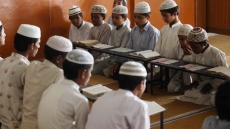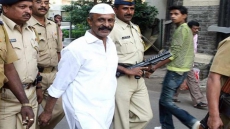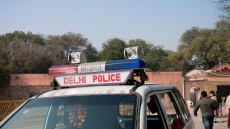Prime Minister Narendra Modi here on Thursday set rolling a new slogan, 'Saaf Niyat, Sahi Vikas', about his government as he gave away over 1 lakh houses to women under the flagship Pradhan Mantri Awaas Yojana (rural) scheme, calling it a Rakshabandhan gift.
The Modi government's oft-mentioned slogan has been ‘Sabka Saath, Sabka Vikas' right from the BJP's election campaign ahead of the 2014 Lok Sabha elections.
The Prime Minister was speaking at an event in Jujwa village in the tribal-dominated regions of Valsad district in South Gujarat after he ushered in ‘e-Gruh Pravesh' in the houses to women. Over 1.15 lakh residential units have been built at a cost of Rs 1,727 crore under the scheme.
Modi also spoke on video to women across 26 districts who are the beneficiaries of these houses.
"Our government is marching ahead on the commitment of 'Saaf Niyat, Sahi Vikas' and this is why I can ask you all here in everyone's presence if anyone has cheated you," the Prime Minister said.
Modi went on: "I got an opportunity to talk to women across the state today who got their homes under the PM Awas Yojana. It's a Rakshabandhan gift to my sisters in Gujarat.
"Providing over 1 lakh houses to them before the occasion of Rakshabandhan is really a satisfying moment for me," he said. The houses were "wonderful" because no middlemen were involved in there allotment, he added.
The Prime Minister said: "It is my dream, it is our endeavour to ensure that every Indian has his own house by 2022.
"Till now we only heard politicians getting their own homes. Now, we are hearing about the poor getting their own homes."
Modi also laid the foundation stone of Rs 586 crore Astol group water supply scheme for the benefit of tribal villages tucked away deep into forests of Dharampur and Kaprada talukas (tehsil) in Valsad district.
"There might have been several Adivasi Chief Ministers in the country in the past but it is our government that is working to reach water to every nook and cranny in the tribal areas," he said.
He said the Astol Group Water Supply Scheme, of which he laid the foundation stone, was "glaring evidence of our commitment to provide drinking water to smallest villages with 200 to 300 houses in the tribal regions".
Under the scheme, water would be lifted from the Damanganga dam and supplied to these villages through a pipeline network.




